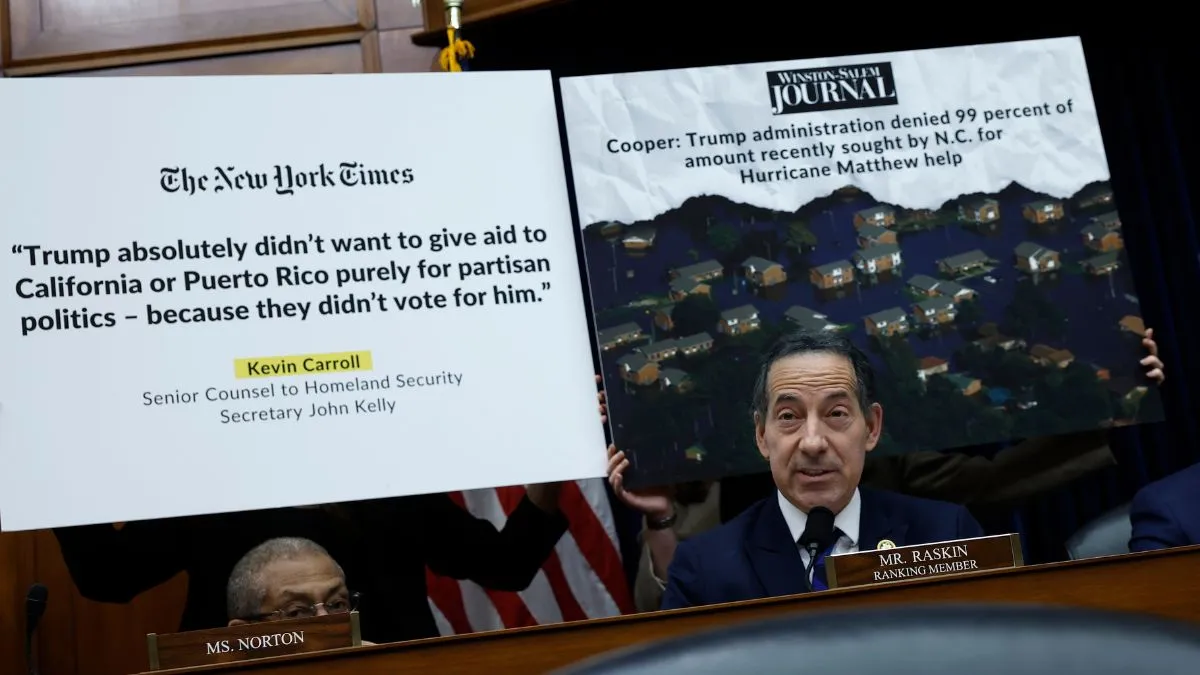Mayor Michelle Wu emphasized urgency for the Senate to act by late November on a stalled bill that would allow Boston to hike commercial tax rates to help homeowners avoid what she now says would be a 28% tax increase next year.
The projected property tax increase for the average single-family homeowner is below the 33% quarterly spike the mayor had initially predicted for January tax bills, per the city’s first assessment estimates released on Wednesday, which show that the legislation would lead to a 9.9% quarterly increase, rather than 27.8%.
Such a scenario amounts to what critics of the mayor’s plan quickly pointed out, while citing the city data, would provide just a $495 annual tax savings for the average single-family homeowner with the legislation, or about $9.50 per week.
Still, the mayor, on a call with reporters, stressed the importance of implementing the tool, which she said would help to avoid a “sudden shock to the system,” for both the city’s budgetary tax structure and for residents who are already facing today’s perceived “housing crisis” and “inflationary pressures.”
“This would be a major shock,” Wu said of a 28% quarterly increase brought on by declining commercial property values driven by changing work patterns that have persisted since the pandemic and resulted in vacant office buildings.
That dynamic has eroded the city’s commercial tax base and is projected to shift more of the tax burden, by way of a city budgetary structure that derives more than 70% of annual revenue from property taxes, onto homeowners.
Wu says her bill seeks to resolve that scenario, in a way that would preserve today’s respective 60-40 split between the city’s commercial and residential sector, in terms of commercial properties taking on 60% of the tax burden.
By shifting more of the city’s tax burden onto businesses over a three-year period, beyond what’s allowed by state law, city tax bills could be stabilized in a way that would avoid a “massive tax break” to commercial properties and a “significant” increase in residential property taxes, the mayor’s office has said.
The new city data show that the average homeowner’s tax bill in fiscal year 2025, based on an assessed home value of about $838,000 receiving the maximum residential exemption, would be roughly $6,290 without the legislation — a $768 increase over last year — and about $5,795 if the legislation were to be approved, amounting to a $273 tax increase over last year.
A $5 million commercial property would see a 6.7% decrease in taxes next year without the legislation, or about $8,414, and just a 0.5% decrease with it, or $679, according to city data.
While the mayor and her two financial chiefs emphasized the 28% increase that would be felt by residents from the second to third-quarter tax bills come January, critics of the legislation quickly seized on what they saw as relatively low tax savings the average homeowner would experience over the full year.
The legislation would save the annual homeowner roughly $495 per year in property taxes, or about $9.50 per week.
Marty Walz, interim president of the Boston Municipal Research Bureau, also pointed to the winter’s third quarter bills, which would be on average $1,764 without the legislation and $1,516 if it were to take effect, resulting in a $247 savings with the mayor’s plan, or about $1.35 per day for the average homeowner.
“The Research Bureau has proposed alternatives to the mayor’s property tax proposal, one of which is slowing the growth in the city’s budget,” Walz said in a statement.
On the day’s press call, Wu and her financial chiefs made it clear that they weren’t open to alternative proposals, while speaking specifically to criticism that the city should instead seek to cut a budget that grew by 8% this fiscal year, and a “rebate” approach that was introduced by City Councilor Ed Flynn at a meeting last month.
Cutting the budget to account for the commercial tax shortfall brought on by declining property values would “in essence” mean cutting the levy, which would require trimming about $265 million from the city’s $4.6 billion fiscal year 2025 budget, the city’s director of assessing Nicholas Ariniello said.
The budget cut would mean the city would have to lay off about 2,200 employees, Mayor Wu said, an assessment that received pushback from Walz.
“If spending decreased by just 1% or 2%, it would reduce the tax burden by $34-$69 million,” Walz said. “There are a range of ideas that, in combination, could address a potential increase in residential property taxes while avoiding the negative impact on commercial property owners and their tenants.”
One such alternative was broached at the Wednesday City Council meeting by Councilor Flynn, who introduced a hearing order to “explore utilizing surcharges to provide residential tax relief.”
“For example, surplus receipts from certain Boston tourism fees and surcharges currently directed to the Massachusetts Convention Center Fund could be deposited into the general fund for the City of Boston,” Flynn’s order states, adding that such a fund could be used to provide property tax relief to residents.
Flynn had previously introduced a hearing order to explore providing targeted tax relief to city homeowners who would be most impacted by a property tax hike.
Those with homes valued at or below $1.5 million would collectively receive $45 million in city funds over three years, which would benefit 20-30% of Boston households, his prior hearing order stated.
The Wu administration doused the approach of giving rebates directly to homeowners, which the mayor called “illegal.”
“Aside from figuring out exactly where that money would come from, that actually raises a number of other state law and potentially constitutional issues,” Ariniello said. “That’s a solution that actually isn’t addressing our problem. And then secondly, it has major legal implications, and we don’t think it’s actually viable.”
The mayor’s plan passed the House as part of a compromise Wu struck with ally Aaron Michlewitz, a North End Democrat who chairs the House Ways and Means Committee, on the last day of formal legislative sessions in July, that tapered down the scope and length of her initial proposal by way of an executive order Wu agreed to sign if it passes.
It has thus far been met with a more tepid response in the Senate, which was not involved in discussions involving the informal compromise struck with House leadership — a somewhat unusual scenario in that home rule petitions aren’t often changed once they reach Beacon Hill.
Wu met privately with Senate leadership and the Boston delegation last month about the bill, and stressed the urgency of getting it passed by late November on Wednesday, but Spilka would not commit to that timeline when asked by reporters.
“We’ll continue to look at it and have conversations again,” Spilka said. “My hope is that the city and stakeholders continue to have conversations about the options and possibilities that were raised during that convening.”







